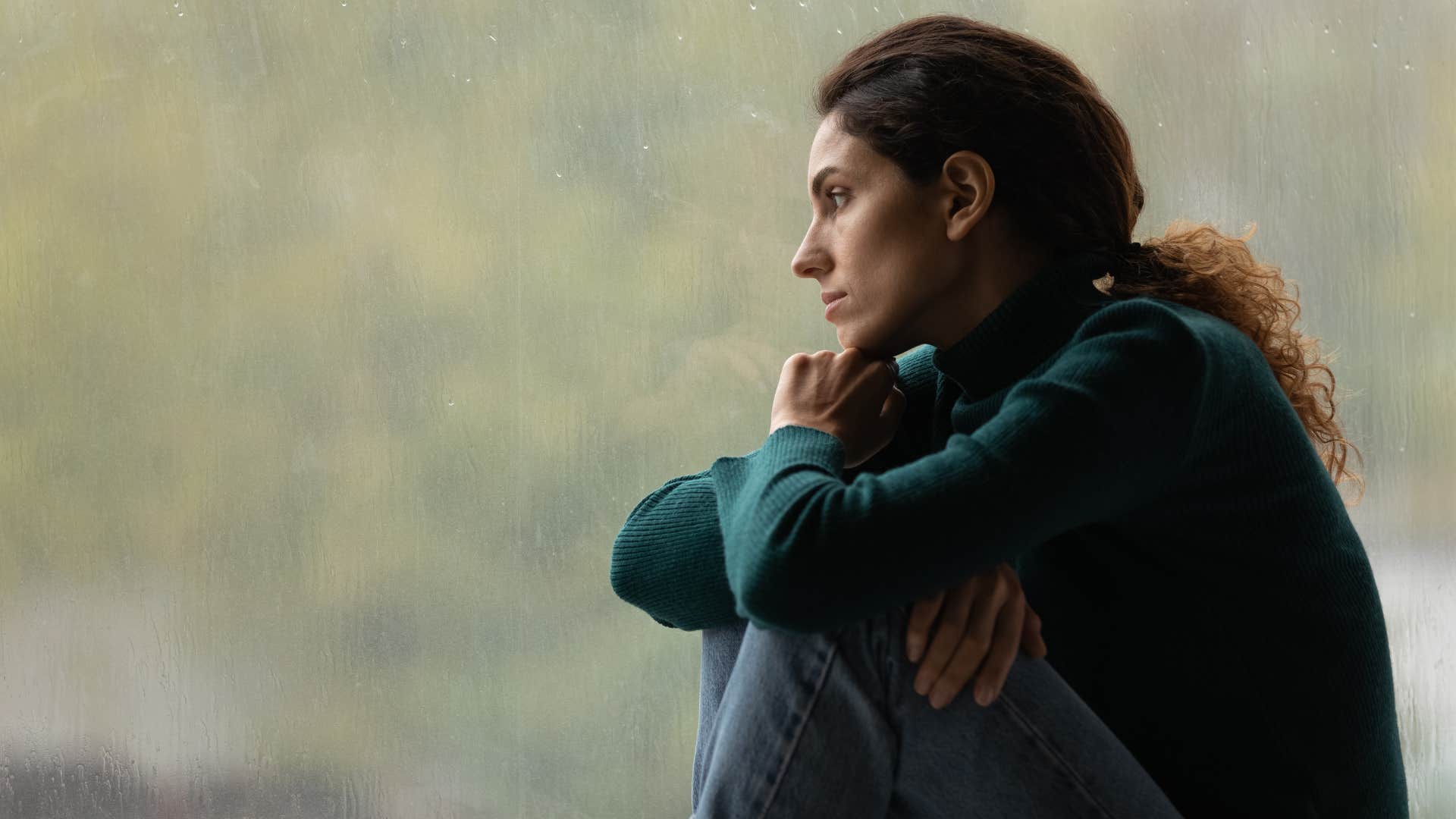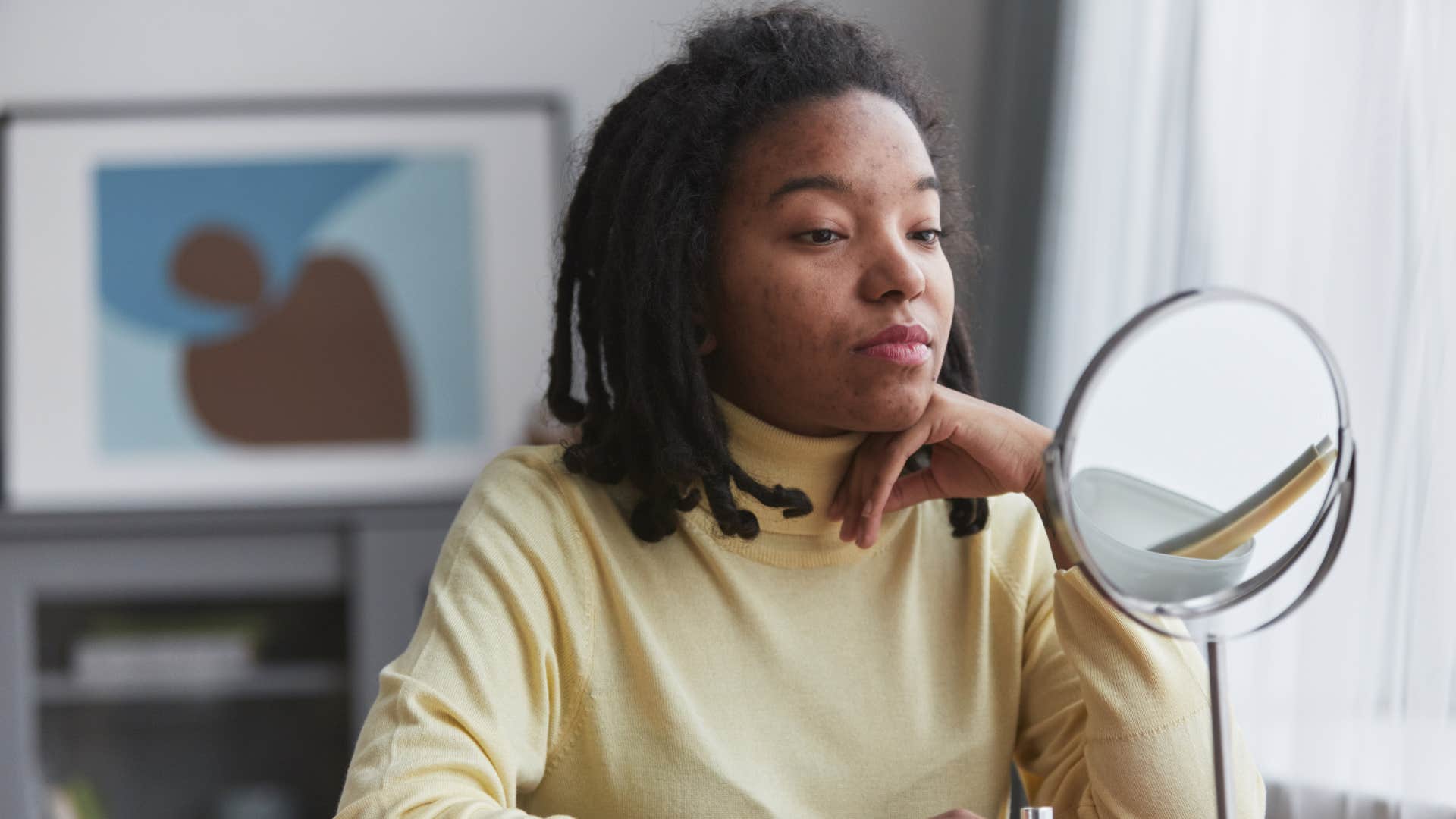The Art Of Forgiveness: 10 Simple Habits Of People Who Don’t Beat Themselves Up Forever
Forgiveness is a tricky process.
 Pexels User | Pexels
Pexels User | Pexels I learned about forgiveness the hard way by holding onto mistakes and destructive behaviors for years. The longer I held onto them, the greater the burden they became.
If you're struggling to practice self-forgiveness, there's hope, because everyone can do this, even though the process will be different for us all. For years, I held on to bitterness and anger toward close relationships. Only by forgiving myself was I able to experience such incredible freedom from these burdens.
The art of forgiveness: 10 simple habits of people who don’t beat themselves up forever:
1. They don't attach emotions to regrets
 Roman Samborskyi via Shutterstock
Roman Samborskyi via Shutterstock
One of my first realizations was that I was attaching emotions to the things I had regretted doing. I was actually connecting my mistakes to my limiting beliefs.
So, is it any wonder I couldn’t forgive myself for my action because it was really the underlying emotion that needed to be addressed? For example, if I screamed at my mother, I would feel very guilty afterward. Trying to forgive myself for the screaming was ineffective, as I needed to look at the guilt it caused me.
2. They move on from the past
 MAYA LAB via Shutterstock
MAYA LAB via Shutterstock
The past really is the past, and when we can leave it there, we become more open to acceptance. It's a deeply healing experience in itself, where you stop trying to change situations. We find it hard to let go of the past because we feel it is really part of us, but remind yourself that, at that very moment, you did the very best you could with the tools you had at the time. Keep what you have learned from the event, and let go of everything else.
A study of older adults and getting over past mistakes explained that "older adults were less sensitive to regret-inducing outcomes, whereas they demonstrated comparable ability in using prospective regret to guide decisions, regardless of whether they made decisions for themselves or on behalf of others."
3. They take a look at the relationship they have with themselves
 Ground Picture via Shutterstock
Ground Picture via Shutterstock
You can forgive those around you whom you love dearly far more easily. So, by loving yourself and being less critical, less harsh, and giving yourself the benefit of the doubt, you will allow yourself to appreciate yourself that bit more.
Putting yourself first, taking care of your needs, creating boundaries, and practicing self-care will give you a new positive perspective. Coach Keya Murthy recommended, "Others can only treat you as well as you treat yourself. And you can only treat others as well as you treat yourself. And, if you're treating others better than you treat yourself, there is an unconscious expectation lingering in your care for others, which might, more often than not, create disappointments for yourself."
4. They recognize where they could have done things differently
 fizkes via Shutterstock
fizkes via Shutterstock
It's a great learning experience to write down how you would do it differently next time. This affirms to your subconscious mind that you have learned from the situation. And if you had the tools you have now back then, things wouldn’t have worked out as they did.
You can then create a clear visualization in your mind of your new creation. This is how we learn not to repeat mistakes.
5. They don’t nitpick every past mistake
 PeopleImages.com - Yuri A via Shutterstock
PeopleImages.com - Yuri A via Shutterstock
Just look at the main ones to forgive yourself. You will identify a pattern, and once you can see the behavior developing, you can focus on changing that and not just the "one-off" events.
"Ultimately, there is nothing you can do to change the past, and regret only keeps you stuck looking backward," explained Dr. Lucy Brown, PhD, and the late Dr. Helen Fisher. "Take an inventory of your life as it currently exists, and the things that you have to look forward to. Find ways to break out of a rut, schedule exciting new experiences with your friends and family, and start working toward your biggest dreams. With so much on your plate, the pain of regret will soon be replaced by hope for the future."
6. They admit their errors
 fizkes via Shutterstock
fizkes via Shutterstock
We are brought up not to make mistakes, and if we do, we get punished. So, naturally, we try and hide from them. Life coach Sidhharrth S. Kumaar explained that "Fear is one of the most common reasons for people not being able to admit they are wrong at the right time. The worry associated with harm to their reputation and credibility derails their awareness and acceptance of being incorrect."
When you can admit to yourself that you have taken ownership of a mistake, you realize you're human, and it's how you grow and learn. If you’re making mistakes, you’re stepping out of your comfort zone.
7. They don’t go through it alone
 PeopleImages.com - Yuri A via Shutterstock
PeopleImages.com - Yuri A via Shutterstock
Start sharing your feelings with someone you trust. You will soon realize that sharing your thoughts will actually stop you from sliding down a path of denial and repression.
Mindfulness coach Moira Hutchison suggested, "When you request aid from a friend or relative, they feel emotionally closer to you. After all, if you feel comfortable enough to reach out for help, that's quite a compliment to them. Plus, when they come to your aid, you'll recognize how much they care about you."
8. They apologize to those they've wronged
 fizkes via Shutterstock
fizkes via Shutterstock
If you’re struggling to forgive yourself for something you have done to someone else, the best way is to say "sorry" to that person. Do so face-to-face, if possible, but if you can’t do that, perhaps send a message or an email. Don’t expect a response; just know that you have said "sorry."
Consultant Susan Kulakowski advised, "Apologies to people you love and who love you can be as easy or as difficult as you make them. Trust that you’re apologizing to people who love you. You may be ashamed of yourself at the moment and fearful of their reaction. They may be tremendously disappointed in you at the moment. Yet, unless you’ve done something truly unforgivable, trust that they will hear your apology. And remember that your apology may not be immediately accepted — sometimes we all need time to reflect and forgive."
9. They make it right going forward
 CarlosBarquero via Shutterstock
CarlosBarquero via Shutterstock
I can’t go back and change how I behaved towards my family — yelling with such anger at my mom, or being known as the "Fun Police" by my children. But what I can do is to be a better parent and daughter right now. I can’t "make up" for what I did, but I can learn from the past and create a new future.
Therapist Nicole Corbett suggested that "You can’t change the events of the past, but you can tell yourself a different story about it. A story where you’re the hero. Look for ways you have grown from the experience. How have you taken that negative period from your past and made it into a strength?"
10. They reflect on how far they've come
 SeventyFour via Shutterstock
SeventyFour via Shutterstock
Before you close your eyes at bedtime, reflect over the day and remind yourself of all the things you have been able to do and made a difference, however small — the smile you gave to a stranger, the rubbish you picked up in the park, the dinner you made for your husband, the person let in front of you in the supermarket queue.
Hold onto these thoughts as you drift off to sleep. Why? Because you really have become an amazing person. Forgiveness is the very best tool that allows us to face what we have done in the past, acknowledge our mistakes, learn from them, leave them behind, and move on.
It doesn't mean we excuse what has happened, and it doesn’t mean we forget what has happened. It means we have learned and moved on in a better way. Let go of the burden you're carrying, so you can learn how to forgive yourself and start to experience freedom in your life.
Louise Armstrong is a family relationship coach, counselor, author, and clinical hypnotherapist.

